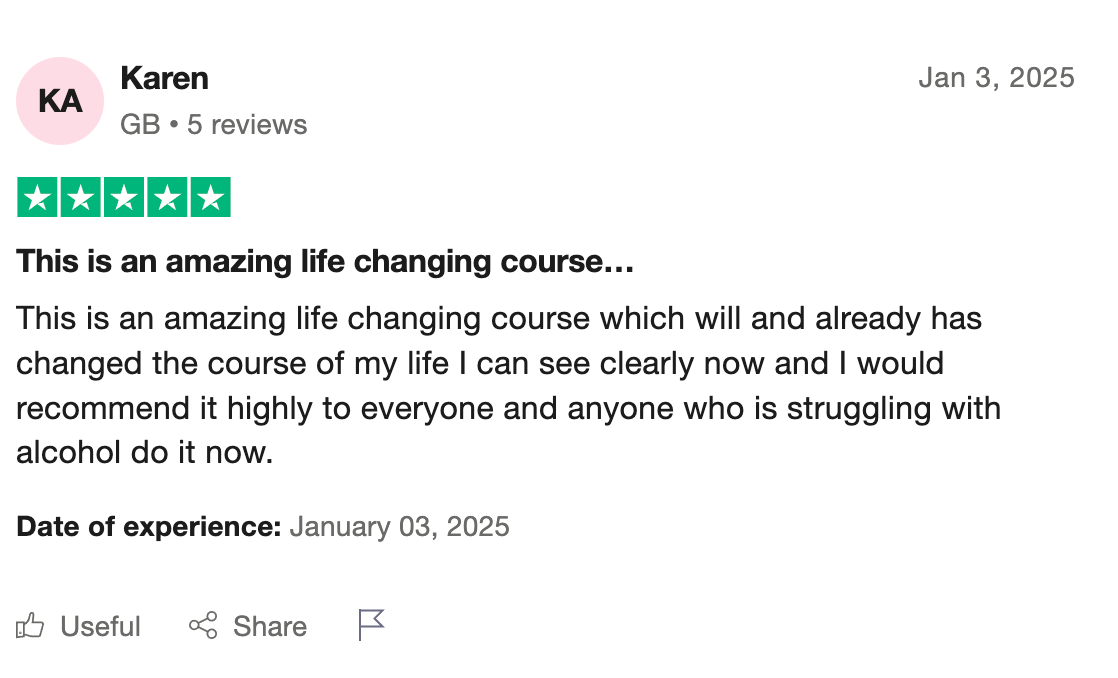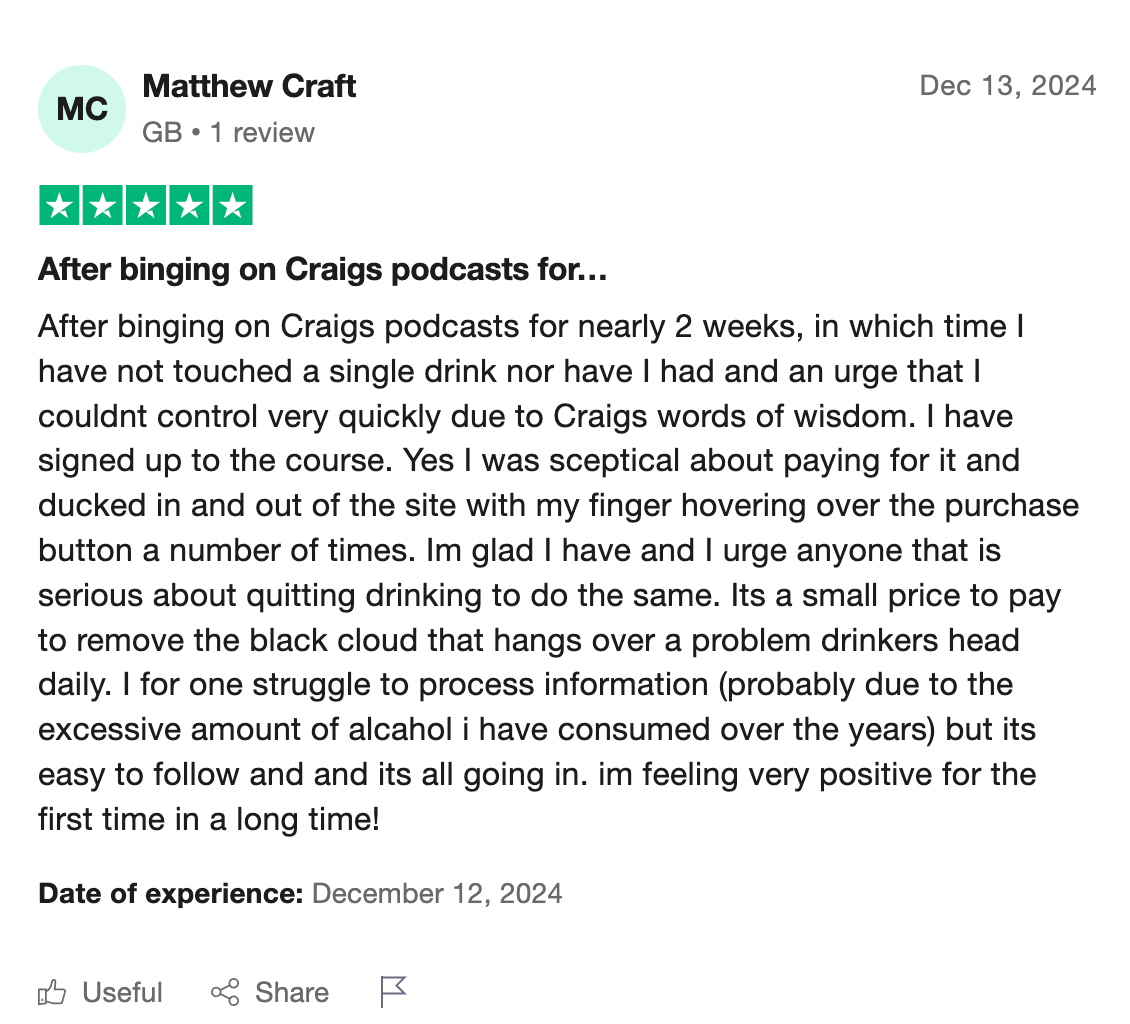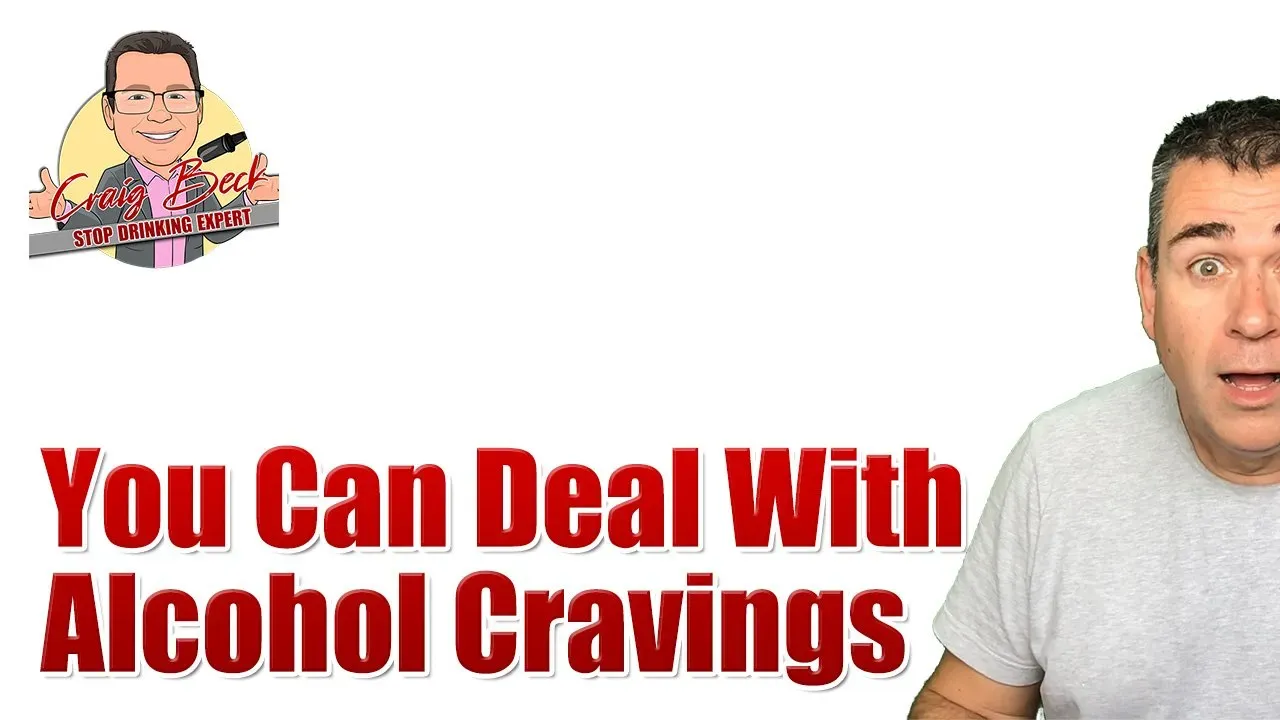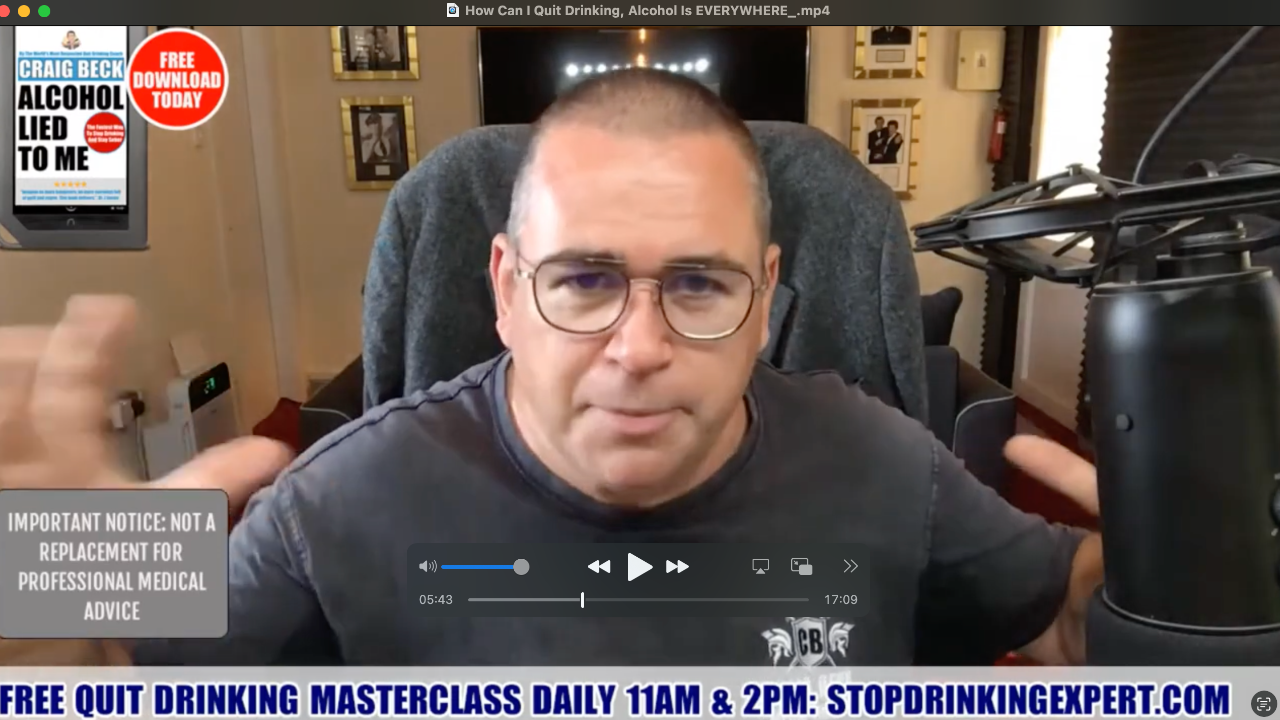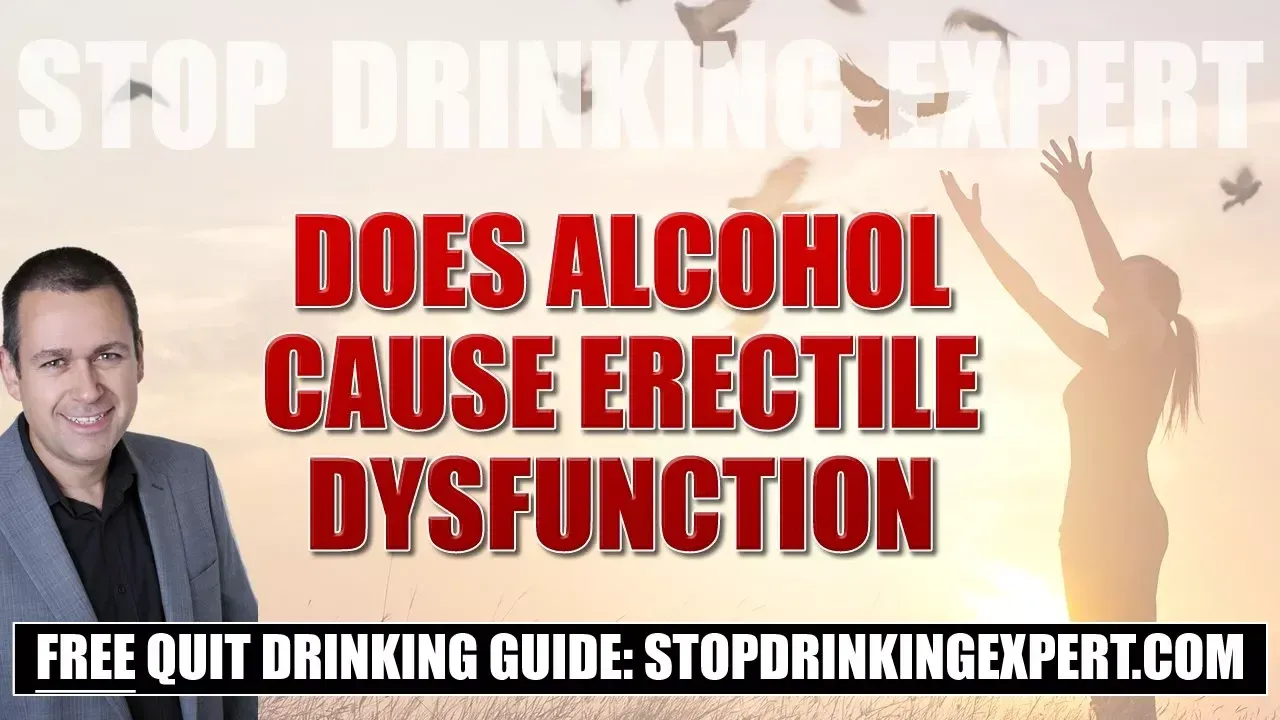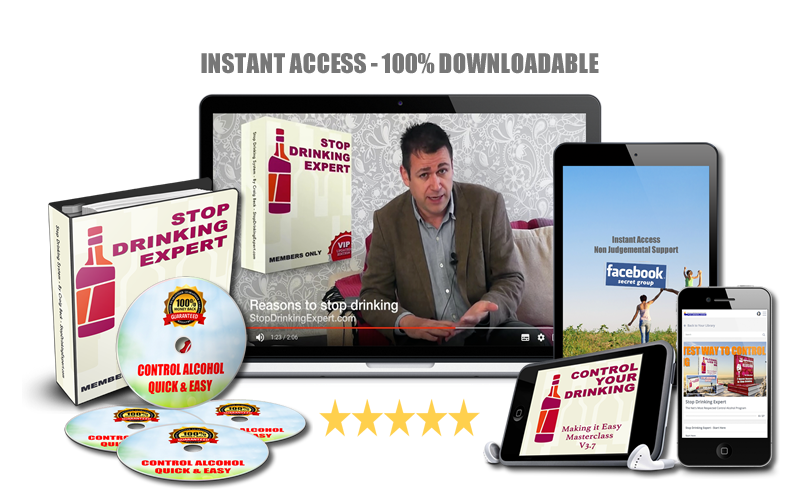How Does Alcohol Affect Sleep And How Sober Makes For Better Rest

How Does Alcohol Affect Sleep
Think about the last time you fell into bed after a heavy night of drinking. Your eyelids slammed shut yet you still woke before dawn feeling as if a truck had reversed over your skull. That disconnect between passing out and genuine sleep explains why alcohol and rest never row the same boat. Tonight we lift the curtain on that clash and show how sober living can hand you the deepest, sweetest slumber imaginable.
At first alcohol feels like a friendly tranquiliser because it amplifies gamma aminobutyric acid, the brain’s main braking chemical. Breathing slows, muscles loosen, speech thickens. Yet inside the skull another force rallies. The stress hormones adrenaline and cortisol begin to rise as the body recognises poison in the bloodstream. By the time that hidden alarm rings you are already asleep which is why the second half of the night turns into a restless rodeo.
While you might believe those initial hours equal deep rest research paints a darker picture. Slow wave sleep, the stage that repairs muscles and files memories, shrinks by up to forty percent after moderate drinking. REM dreams take an even bigger hit. Strip away those nightly maintenance crews and tomorrow you stumble through fog, lose words, mislay keys and snap at the dog. That cycle repeats until fatigue becomes your standard operating mode.
Scientists at the University of Melbourne tracked forty healthy adults over two weeks and found just one glass of wine delayed the onset of restorative sleep by twenty minutes. That might not sound grim yet multiply that deficit across a year and you sacrifice the equivalent of nearly ten full nights. No wonder tension builds behind the eyes. Thankfully the moment you stop pouring ethanol those numbers swing in your favour with surprising speed.
The Chemical Tug of War in Your Brain
GABA may open the door yet glutamate storms through later with marching boots. This excitatory compound surges as your liver breaks down alcohol. The clash between the two chemicals resembles a tug of war held in a nightclub. By three in the morning glutamate, normally quiet, roars louder than a jet engine. Heart racing, subtle sweats, you snap awake. Many reach for water, others swallow more booze. Both responses prolong the mayhem.
Bright researchers at Stanford discovered that people who drank even modestly spent more minutes in stage one dozing and fewer in stage three deep waves compared with abstainers. Imagine tuning a radio only to hear static because the dial refuses to lock on the station. That is how your brain feels when alcohol keeps jittering between arousal and sedation. Remove the irritant and suddenly the signal clears delivering rich symphonies of delta activity.
Clients in our coaching programme often report a magical change as soon as they turn the tap off. One Yorkshire truck driver told me that after three sober nights he bounced out of bed before dawn humming along to the birds. The bags under his eyes faded like an old newspaper left in the sun. His experience mirrors study data showing REM cycles double within a fortnight of quitting. Real change arrives fast.
Still wondering whether these advantages apply to you? Have a quick glance at our guide on alcohol and sleep problems and note how many bullet points match your nightly ordeal. Recognition sparks motivation. You are not failing at rest, your biology is fighting a chemical interloper. Empower yourself with knowledge then prepare to trade that dawn dread for pillow contentment. Better mornings begin with a single brave evening.
Light Sleep Versus Deep Repair
Light sleep keeps you alive however deep sleep keeps you thriving. During stage three growth hormone gushes like Niagara Falls, mending torn tissue, fortifying bones and boosting metabolism. Alcohol acts like a mischievous teenager pulling the fuse from that waterfall pump. After years of diluted deep sleep chronic aches refuse to heal and waistlines creep outward. Park the glass and the waterfall roars back soaking every cell in restorative waters.
Cardiologists from Dublin linked shortened deep sleep to elevated blood pressure in adults who drank nightly even when consumption sat below so called safe limits. The heart works like a London taxi never quite switching off. It desperately needs that slow wave siesta to reset electrical rhythms. Sober nights gift the organ a calm garage and a skilled mechanic. Expect steadier beats brighter cheeks and more pep in your step.
Meanwhile your brain sorts memories during REM like a diligent librarian. When alcohol blocks that phase yesterday’s lessons scatter across the floor. Back at work you find vocabulary hiding behind mental shelves and projects suddenly appear more complex. Reclaim REM and you sprint through tasks leaving colleagues yawning. If career momentum matters keep a close eye on the bottle because it silently steals your professional edge each night.
Why You Wake at Three in the Morning
Glucose crashes play a cruel trick as well. Alcohol prompts the pancreas to pump insulin which drags blood sugar downward hours after your last drink. The brain depends on glucose so the moment levels dip alarms blare. Cortisol surges, blood vessels constrict and consciousness flicks on like a strip light in a dark room. You sit upright confused, parched, maybe anxious. Remove alcohol and those nocturnal sugar spirals flatten within days.
For people already wrestling with anxiety overnight awakenings feed a vicious loop. You wake jittery, reach for a calming nip, drift off, then shock the nervous system anew. Psychologists call that pattern conditioned arousal. The cure lies not in stronger sedatives but in breaking the association. A simple breathing drill, drizzle lavender oil on the pillow and skip the nightcap. Soon the mind relearns that bedrooms mean rest not wrestling matches.
Curious about other health ripples created by booze? Explore the eye opening piece on the benefits of quitting drinking and see how improved sleep forms just one jewel in a broader crown. Knowledge arms you with confidence and confidence propels action. Tuck that article into your reading list for tomorrow’s train ride. You will nod along and perhaps grin at the future now sprouting inside your head.
Knock on Effect for Mood, Weight, and Immunity
Good sleep acts like the headquarters of your whole wellbeing army. When you secure seven solid hours inflammatory markers tumble, hunger hormones balance and decision making sharpens. Alcohol robs every one of those battalions. People who quit often notice snug clothes within a month not because they diet fanatically but because leptin and ghrelin stop ping ponging. Their immune systems stand taller too so winter sniffles bounce off like tennis balls on a brick wall.
Emotional landscape shifts too. A University College London survey showed that participants who removed alcohol for thirty days experienced a thirty percent drop in reported anxiety. Although improved sleep is not the only factor it plays a starring role. Dreams process social worries, mood stabilising neurotransmitters reset and prefrontal circuits gain energy. Wake refreshed and you approach conflict with the grace of a seasoned diplomat rather than the jittery reflexes of a cornered cat.
Sports coaches love sober sleep because growth hormone surges build muscle and burn fat while the athlete lies still. You may not chase medals yet you surely desire vitality. Imagine strolling the dog with springy ankles or climbing office stairs without panting. Those moments stack into a vibrant life. Alcohol shakes that ladder; dentists talk about micro fractures, bones callus slower. Cut the drink and your foundation strengthens quietly every dawn.
The First Week of Sober Sleep
Despite old myths you will not spend months tossing about like a ship on a stormy sea. The first few nights may feel odd because your brain rewires expectation yet within seven days most people report falling asleep faster and staying asleep longer. Sweating reduces, heart rate steadies, and bizarre dreams calm. Use those early successes as fuel. Celebrate them instead of moaning about what you miss because momentum loves applause.
Prepare for that inaugural week by setting a gentle routine. Dim lights an hour before bed, sip chamomile tea, read physical pages not glowing screens. Keep the bedroom cool, clutter free and reserved for sleep and intimacy. If withdrawal jitters pop up jot thoughts on paper then stretch the calves. Movement drains adrenaline faster than worry alone. Remember you are not broken you are simply teaching an old dog a glorious new trick.
For additional tactical tips wander through our article on stress and alcohol use. The piece outlines breathing patterns and miniature meditations that dovetail perfectly with a sober sleep quest. Print the list, stick it on the fridge and tick boxes each evening. Small gold stars generate huge psychological payoffs. In no time those stars blur into new neural wiring that craves pillows not pints.
Notice how each recommendation pairs behaviour with reward. That feedback loop stands at the core of our entire Stop Drinking Expert method. We do not simply remove alcohol we replace it with states and habits that feel undeniably better. Sleep improvement provides the first taste and your wise body instantly begs for more. Let it feast because biology always votes louder than willpower eventually anyway.
Building a Bedtime Routine Without the Bottle
Rituals anchor the mind. Pilots run checklists, chefs sharpen knives, yogis roll mats. Your new evening ritual might include a warm shower, peppermint lotion on temples and five grateful thoughts whispered into the duvet. The sequence does not need scented candles or moon chants although both are fine if they make you smile. What matters is repetition because repetition whispers safety to the nervous system and safety invites deep unbroken sleep.
Swap the usual late night wine glass for a tall tumbler of sparkling water kissed with lime. The fizz tickles taste buds and the citrus scent signals refreshment. If your hands feel empty try spinning a pen or kneading a stress ball. Behavioural scientists call this displacement. You are not denying yourself anything you are upgrading to a version that rewards rather than punishes. The result is quieter neurons and longer dreams.
Readers who still doubt the payoff should dip into our detailed breakdown of alcohol’s impact on sleep. The charts within that post paint the story in clear colour. Numbers rarely lie and the difference appears stark enough to jolt even stubborn friends. Share the link because collective journeys often outrun solo missions. As the proverb says shared joy doubles. Offer encouragement and watch support flow both directions.
Next Steps Toward Peaceful Nights
You have read the science, felt the motivation bubbling and maybe already pictured tomorrow morning stretching like a golden ribbon ahead. The only step left is action. Download your complimentary copy of our bestseller Alcohol Lied To Me from StopDrinkingExpert.com. The pages outline a step by step path, stronger than willpower, softer than shame. Follow along and you will not merely sleep you will soar. Grab it today and give your dreams permission to bloom.
The pillow has always served as your nightly charging port. Stop pouring sand into the socket. Choose clarity, vitality and genuine rest. By this time next week you could open your eyes before the alarm feeling not older but younger. That possibility sits three inches from your fingertips. Close the bottle, open the book and drift into the kind of sleep that writes entire chapters of a brighter life while you snore.
External References
- Roehrs T, Roth T. Alcohol and Sleep. Sleep Medicine Reviews. 2001.
- Ebrahim IO, Shapiro CM, Williams AJ, Fenwick PB. Alcohol and Sleep: A Review. European Neuropsychopharmacology. 2013.
- National Institute on Alcohol Abuse and Alcoholism. Alcohol and Sleep. 2015.
- Stein MD, Friedmann PD. Disturbed Sleep and Its Relationship to Alcohol Use. Substance Abuse. 2005.
- Colrain IM, Nicholas CL. Alcohol and the Sleeping Brain. Handbook of Clinical Neurology. 2018.
Further Reading on the Blog
More Helpful Quit Drinking Advice
Does this sound familiar?
- Drinking to escape stress and to cope with the pressures of life?
- Waking up full of guilt and regret that you drank again last night despite promising that you wouldn't?
- Hiding alcohol or the evidence of your drinking?
- Feeling like you are living a double life because of your drinking?
- Creating silly rules to try and control your drinking (e.g., I will only drink on special occasions)?
The good news is that you are not alone; the better news is that I can help.
Meet Craig Beck, The World's Most Respected Sobriety Coach
Craig Beck, better known as “The Stop Drinking Expert”, turned a 20-year battle with alcohol into a roadmap for lasting freedom. The bestselling author of Alcohol Lied to Me and The Sobriety Secret discovered that traditional routes like Alcoholics Anonymous can feel embarrassing, public, and all too often, entirely ineffective.
His method is different. It shows you:
- Why you drink in the first place—the hidden brain loops alcohol hijacks.
- How to switch off cravings before they even start.
- A willpower-free exit plan you can follow privately, at your own pace—no labels, no awkward meetings, no medication.
Hundreds of thousands worldwide now wake up clear-headed, proud and at peace thanks to Craig’s approach. Will you be the next?
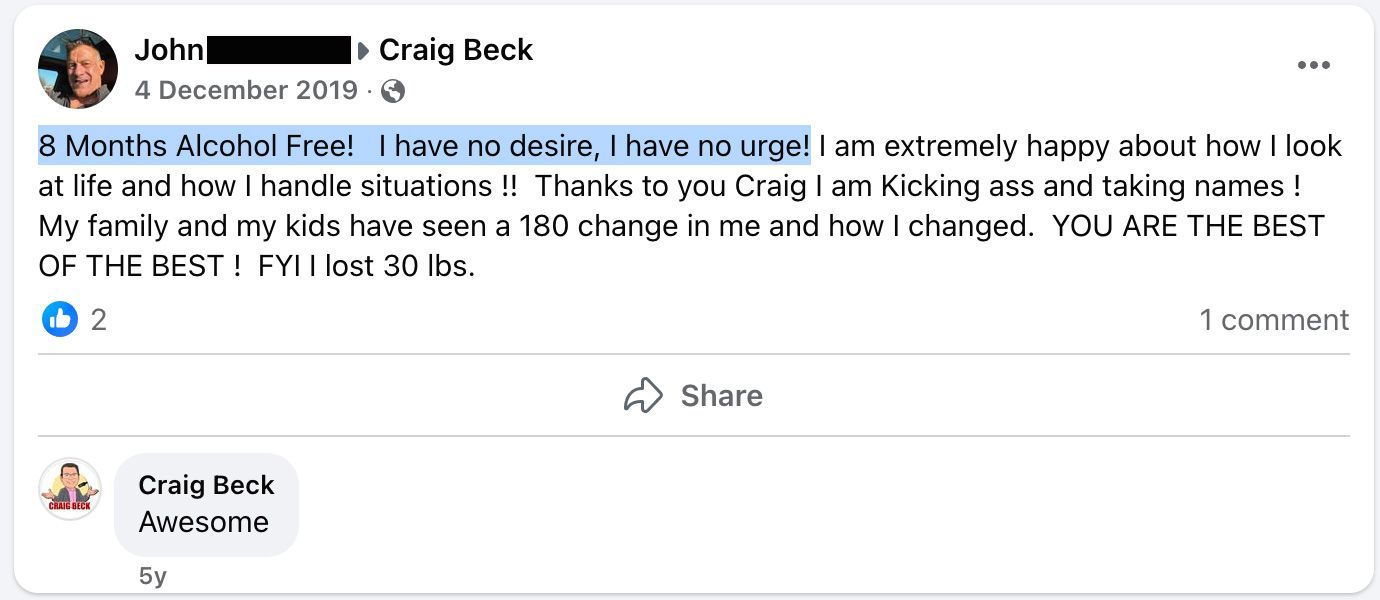
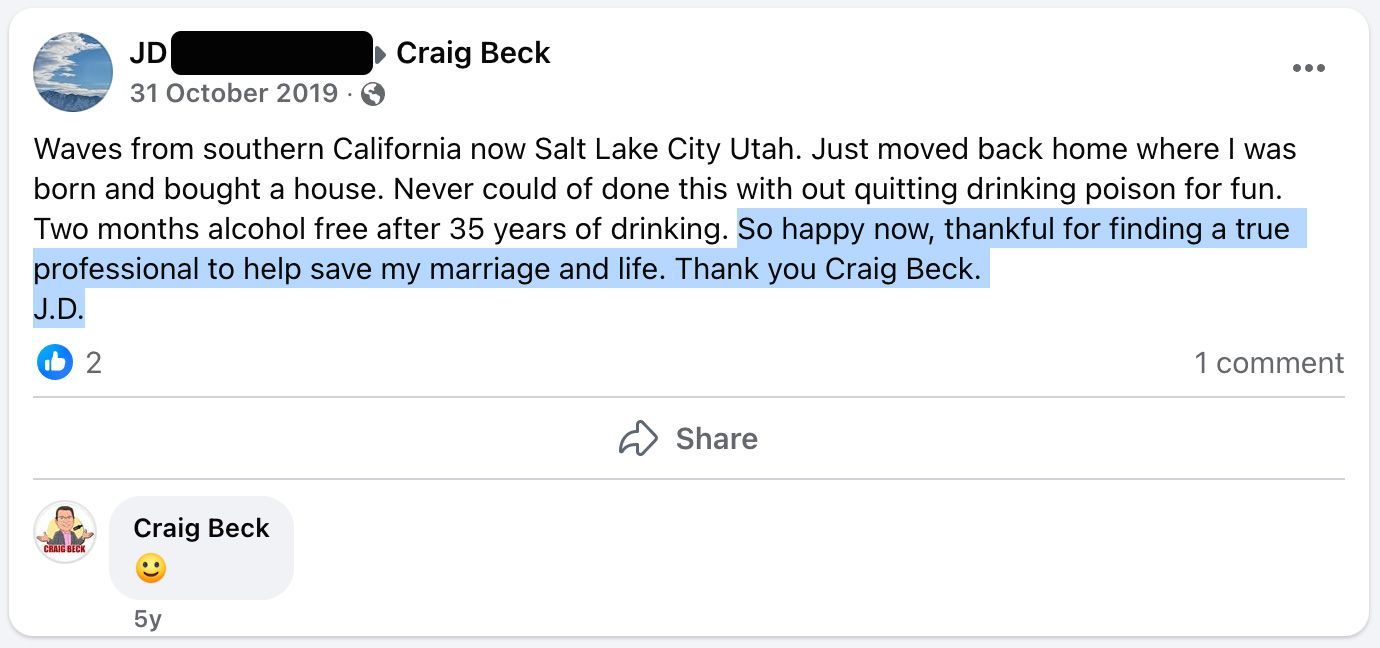
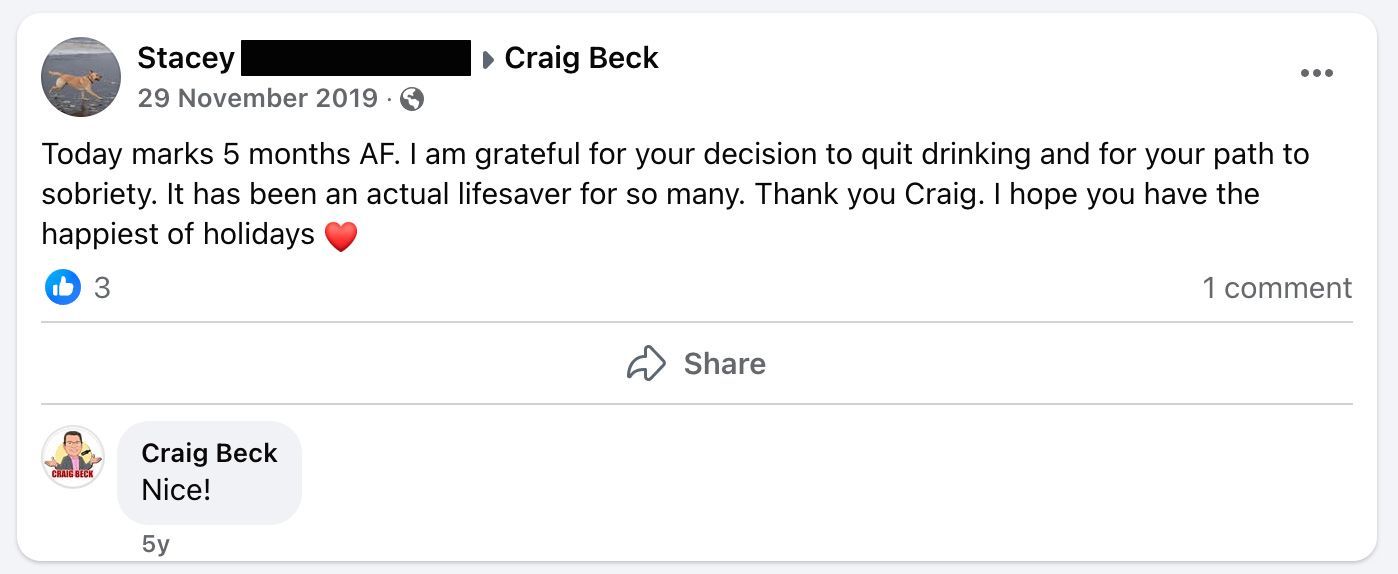
"Effortless Sobriety: The Proven Path to End Problem Drinking"
No one likes asking for help with their drinking—it feels personal and heavy. But if willpower alone hasn’t worked, it’s not because you’re weak. Research indicates that relying solely on grit is unsuccessful approximately 95 percent of the time. You’ve simply been using the wrong tool for the job.
Download my free ebook or decide now get started with the full course and learn:
- Why the game is rigged: how alcohol rewires your brain chemistry and makes “just trying harder” almost impossible.
- A science-based exit plan: practical steps that work quickly, privately, and on your terms.
- No awkward meetings or risky meds: forget the gimmicks—this is about smart strategy, not shame.
`Are you ready to step onto solid ground? Get off the fence, take action, and start taking back control—quickly, confidently, and without the struggle.
Over 250,000 Happy Sober Clients Can't Be Wrong:






